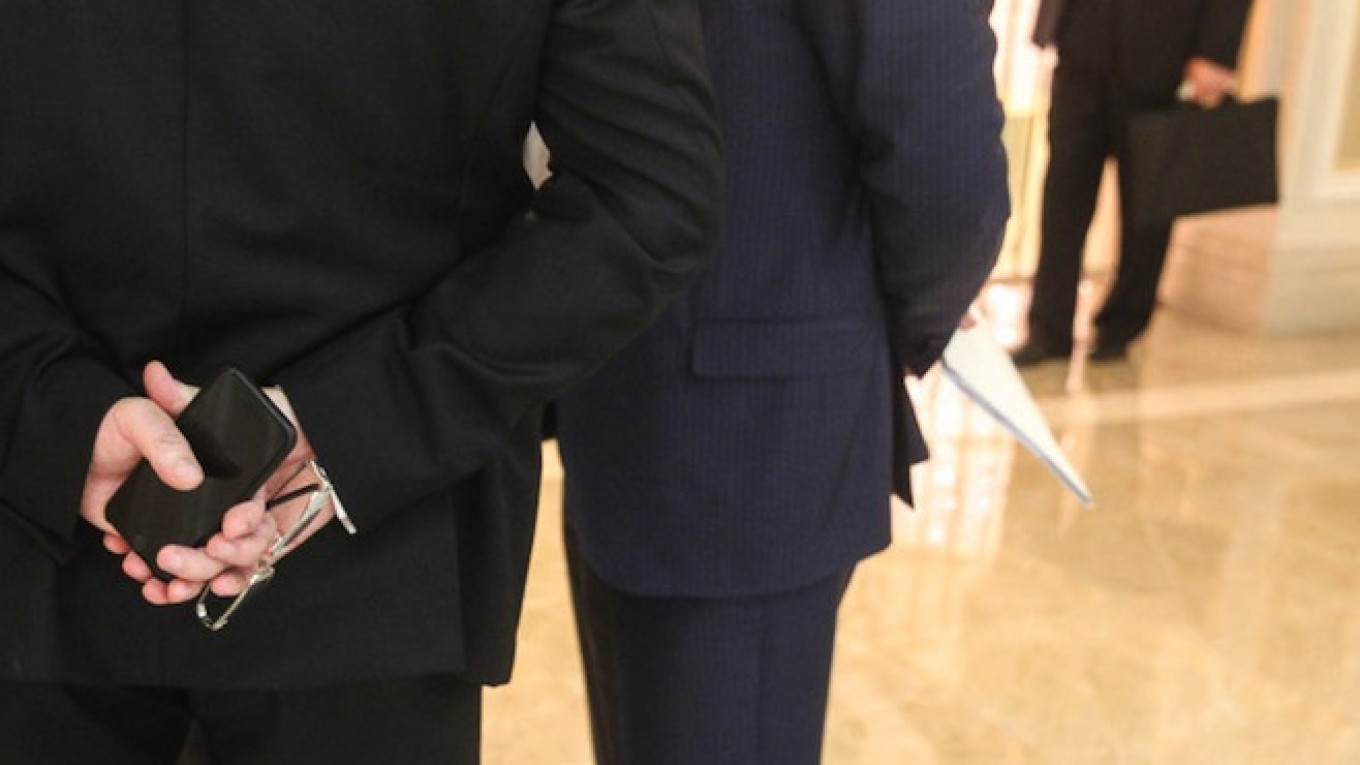The Russian government has called for the creation of a special registry of officials who have been dismissed from their positions on the basis of a “loss of trust” due to corrupt activities, the Kommersant newspaper reported Thursday.
The move aims to serve both as a deterrent to corrupt activities among officials and as a safeguard against employing officials who have previously engaged in corrupt practices, Kommersant reported. While employers won't be prohibited from hiring individuals listed on the registry, they likely won't want to hire known offenders.
A decision has not yet been made on whether the list will be made public.
The State Duma has already expressed support for the project, as has Transparency International, which ranked Russia 136th out of 175 countries in its latest Corrupt Perceptions Index, unveiled in December.
“It's an important measure that deserves support and approval,” Pavel Krasheninnikov, the head of the State Duma's committee on civil and criminal law, said in comments to Kommersant.
Another lawmaker, Valery Rashkin, said the blacklist was a good idea — but only in theory.
“In practice, the law won't work, since corrupt officials are very rarely fired on the basis of the phrase 'loss of trust,' and they usually continue to 'successfully work' in the state system anyway,” Rashkin was cited as saying.
The draft law for the creation of the blacklist has been made by the Labor Ministry and would require amendments to Russia's Labor Code.
In accordance with the legislation, officials on any level of government, municipal civil servants, employees of the General Prosecutor's Office, the Interior Ministry, the Central Bank and the Investigative Committee would all be liable to inclusion on the list if any “conflicts of interest” are discovered in their work.
The Kremlin has introduced a series of measures in recent years to crack down on rampant corruption, including fines for officials found to be accepting or offering bribes.
The battle against corruption seems to be an uphill one, however.
In mid-December, the fines introduced for bribe-takers were decreased after presidential envoy Garri Minkh admitted that almost no one was really paying them anyway, TASS news agency reported.
Contact the author at a.quinn@imedia.ru
A Message from The Moscow Times:
Dear readers,
We are facing unprecedented challenges. Russia's Prosecutor General's Office has designated The Moscow Times as an "undesirable" organization, criminalizing our work and putting our staff at risk of prosecution. This follows our earlier unjust labeling as a "foreign agent."
These actions are direct attempts to silence independent journalism in Russia. The authorities claim our work "discredits the decisions of the Russian leadership." We see things differently: we strive to provide accurate, unbiased reporting on Russia.
We, the journalists of The Moscow Times, refuse to be silenced. But to continue our work, we need your help.
Your support, no matter how small, makes a world of difference. If you can, please support us monthly starting from just $2. It's quick to set up, and every contribution makes a significant impact.
By supporting The Moscow Times, you're defending open, independent journalism in the face of repression. Thank you for standing with us.
Remind me later.






